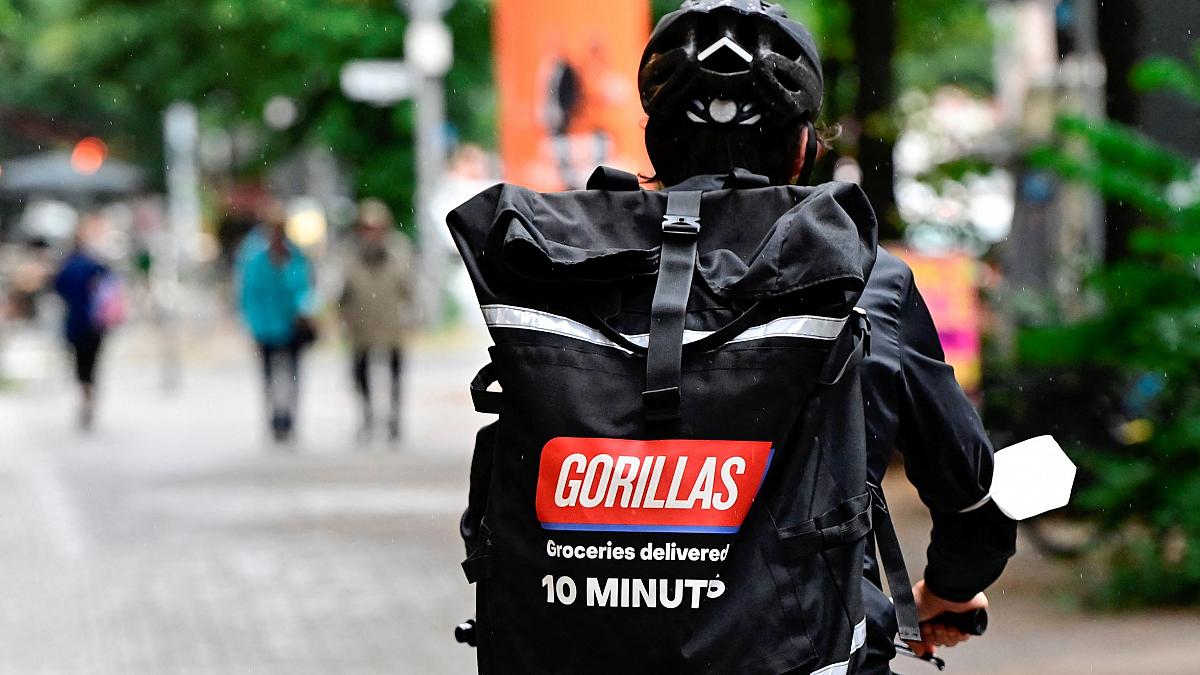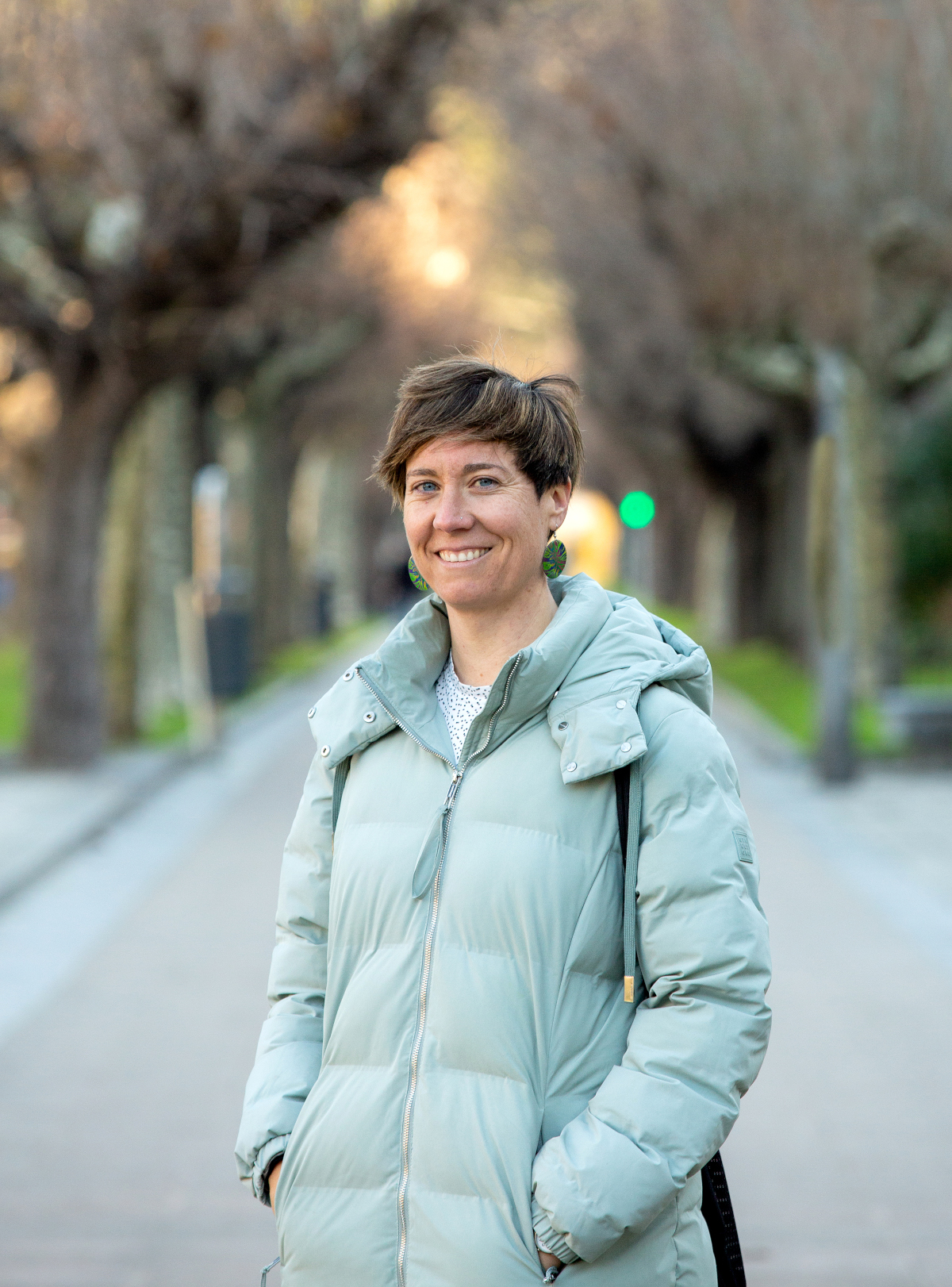"We do not seek to identify the infected person, but to identify the person who is able to infect"
- On March 27, an experimental concert was held at the Palau Sant Jordi in Barcelona, led by researchers from the Hospital Universitario Germans Trias i Pujol and organized by Primavera Sound and other music festival promoters. To access the concert, viewers had to give negative on the same day in the antigen test and, once inside, they did not have to keep distances between them. However, there were other preventive measures: They were going to wear the FFP2 mask, ventilation and areas where agglomerations can occur were controlled... The objective of the experiment was to demonstrate the safety of this type of activity.

The project has been criticized for its dangerousness. The researchers, however, have confirmed that this is a safety measure. One of them is Boris Revollo Barriga, a doctor in infectious diseases and specialized in AIDS. He has kindly answered the questions of Elhuyar magazine, in which he states that it is essential to give direct information to both the scientific community and society in general to avoid misunderstandings and false guesses.
Why did you do this experiment?
We believe that many strategies must be used to overcome the pandemic, vaccination is not enough. Vaccines are probably the most important tool to control the virus, but it is also very useful to test people and diagnose people who can transmit the virus. In fact, if we have a simple tool to identify people who are contagious, we will be able to cut the chain of transmission of the virus.
Antigen tests are highly sensitive for detecting infectious people. We wanted to demonstrate this in the examination we did in the Apollo room (Barcelona) last December. This study was carried out with complete scientific rigor. The test was randomized. We got a thousand volunteers together, we all did an antigen test on the same day of the concert, and we got the results right away. In parallel, we did PCR or TMA.
What kind of test is TMA? What did you use it for?
Like PCR, it is based on amplification of the virus genome, the advantage of which is that many samples can be automated and analyzed at the same time. This allowed us to run many tests in a short time, that is, in 24 hours.
Those who tested negative for antigens were randomly divided into two groups. Half entered the concert and the other half formed the control group. Eight days later, we performed a PCR to all participants. We didn't do the antigen test because we wanted to know whether or not they had a virus, not whether they were contagious. And we saw that there was no infected among those who entered the concert, and instead, we detected two infected in the control.
We performed a Bayesian statistical analysis taking into account the circulation of the virus in Catalonia at that time and the incidences of both groups. The result was that there were no statistically significant differences between the two. Therefore, we came to the conclusion that with all the safety measures we took (to perform the antigen test when entering, wearing the FFP2 mask, to renew the air of the nightclub and to avoid crowds in the toilets and in the smoking area) there was no greater risk of infection in a nightclub without social distance than in the outside. We therefore demonstrate that what was previously considered to be a very dangerous event (a concert inside, without social distance) can be certain if certain measures are taken.
Have you done the same at Palau Sant Jordi?
That's it; what we've done in the Apollo room, we've taken it to 5,000 people. These 5,000 people have tested negative on an antigen test, they have taken the FFP2 mask, we have controlled ventilation and we have taken care not to produce clusters in the bathrooms and in the bars. At this time, we will follow up on the reported cases on days 7 and 14. Based on the study of the Apolo room, we do not believe that the incidence of the concert will be higher than that existing in Barcelona.
Are antigen tests so reliable?
The susceptibility to virus detection depends on the number of CT. CT [cicle treshold] is the number of cycles needed in a PCR to amplify the virus’ RNA to be detectable. The higher the CT, the fewer viruses there are. A study conducted by the team of Oriol Mitjá of the Hospital Universitário Germans Trias i Pujol showed that antigen tests have 99% sensitivity to detect all people with CT below 25.
Moreover, and this is very important, no culture has been observed in cell cultures with CT above 30.
In fact, a distinction must be made between sensitivity for the detection of the virus and sensitivity for the detection of the contagious virus. And we are interested in this second. We do not seek to identify the infected person, but we seek the ability to infect.
Therefore, in the study of the Apollo room, when we received the PCR results, we observed that 24 people who tested negative for the antigen test tested positive for PCR. And they entered the concert. We did a virus culture, and none of them grew. And the research being done in the United States and elsewhere is also having the same results.
In addition to concerts, could antigen tests not be used to make safe other enclosed spaces such as educational centers or workplaces?
That would have to be studied. We've now started doing research in a school, with 14-year-old boys and girls. We've talked to them, and we've relied on their everyday reality to design research. Thus, nasal self-tests will be performed once a week in the presence of the teacher.
Michael Mina Harvard epidemiologist published in the journal a letter in which he is in favor of our own strategy: tstatu-testato-tstatu and we introduce test-time. The essential thing is to understand that if you do an antigen test, you have about 24 hours on the same day to say, very safely, that you won't spread the virus. You won't know if you have it or not; what you can know is that if you have it you won't contaminate... It's a picture of the moment, and you have to know exactly what it means.
At the moment, the strategy is hugely expensive. Attend: Apollo's experiment cost about half a million euros, because we had to do PCR in parallel, to do another to those who have been called again a week later… Demonstrating this is very expensive. We should therefore agree with the authorities on the points to carry out the tests, so that they can be carried out in different places in the cities.
That people can diagnose it to find out who is at risk of contagion. For example, purchase a test and receive instructions for self-testing via a video. In Germany, for example, they are sold in supermarkets. If we do not start testing, we will have to wait to see if we get group immunity through vaccines, not knowing when that will happen, if variants will occur that escape vaccines… In the meantime, we will have to stay locked up at home. There is no solution. We have to think about the solution that we have, even if this is happening.
Do you think that the authorities are going to opt for such a strategy?
If they do not, we will have one more year of catastrophe. I do not particularly like the night atmosphere or concerts, but I think it is a way of demonstrating that this strategy is useful for promoting the culture industry. It can also spread to other closed and controlled locations, as well as helping to control plague. In fact, it serves to detect people without symptoms, and it is precisely they who are most at risk of infection.
Pandemiaren eragina indarkeria matxistan azterketa kaleratu berri du Espainiako Gobernuak. Bertan ondorioztatu dute eraildako emakume kopurua gutxitu egin dela, hauek kontrolatuta eduki dituzten denbora gehitu izanaren ondorioz. Baina emakumeen suizidioak gizonenak baino gehiago... [+]
Merkatura ateratzear den Hipra txertoari patenteak kendu diezazkiola eskatu diote hogei erakundek Espainiako Gobernuari. Izan ere, Kataluniako multinazional honek COVID-19aren aurkako txertoa egiteko entsegu klinikoetarako diru publikotik gutxienez 15 milioi euro jaso ditu.
Nafarroako Gobernuak bart gauerditik aurrera indargabetu ditu COVID-19aren aurkako neurri murriztaile gehienak. Kalean eta ikastetxeetako patioetan ez da derrigorrean maskararik erabili beharko, gaueko aisialdiak eta ostalaritzak pandemia aurreko ordutegiak berreskuratuko... [+]
"Osasun Sailaren immobilismoaren eta konponbide ezaren aurrean", otsailaren 25ean greba deitu dute lehen arretan ELA, SATSE, LAB, CCOO eta UGT sindikatuek eta otsailaren 28an Osakidetzako esparru guztietan. Horrez gain, otsailaren 26an manifestazioak egingo dituzte... [+]
Chop! There it comes again, I've felt in my chest early, this puncture is rare.
Chop! I've gently rubbed the part of my heart above the jersey. To see if it happens, I have already said it under, so no one can hear it. At present, care must be taken to control what you are going... [+]
La Bogue da Frantziako Limousin (okzitanieraz Limosin) eskualdeko hedabide alternatiboa. Kolektibo autonomo batek kudeatua, boluntarioek egina eta militantea, bere burua kokatzen du mugimendu anti-autoritarioaren baitan. Bertan agerturiko artikulua itzuli dugu euskarara.
“Proba bat egin ostean, COVID-19an positibo eman dut. Ondo nago, sintoma arinekin. Hurrengo egunetarako aurreikusitako agenda publikoa atzeratu eta konfinamendutik lanean segituko dut”. Kendu agenda publikoaren zera hori erditik, eta edonorenak izan zitezkeen... [+]
Igande eguerdian milaka lagun atera dira Donostia, Bilbo eta Gasteizko kaleetara gehiengo sindikalak deituta, kalitatezko osasun publikoaren alde eta Lehen Arreta jasaten ari den kolapsoaren aurka. Oso gogor mintzatu dira Iñigo Urkullu buru duen Jaurlaritza osasun... [+]
Osakidetzaren azken protokoloak dio positibo baten kontaktu estua izanagatik COVID-19a azken 180 egunetan pasatu duenak, txertatuta egon edo ez, ez duela etxean berrogeialdirik egin beharrik, baldin eta ez badauka sintomarik.
Txertoaren hirugarren dosia abian da herrialde aberatsetan eta laugarren dosia ere ezarriko zaie arrisku taldekoei. Denborarekin txertoek eragindako antigorputzak galdu egiten dira, eta horiek gehitzeko errefortzu dosiak jartzea da gobernuen estrategia. Baina txertoen alde... [+]
The way science becomes public policy is governed by political and economic calculations, as well as by the moral and ideological commitments of politicians, parties and advisers.” Sociologist Jana Bacevic said this in April 2020 at The Guardian.
We have all been able to see... [+]























